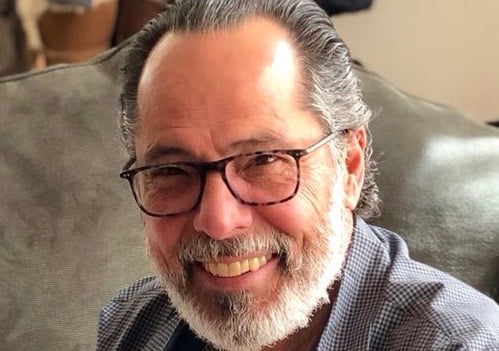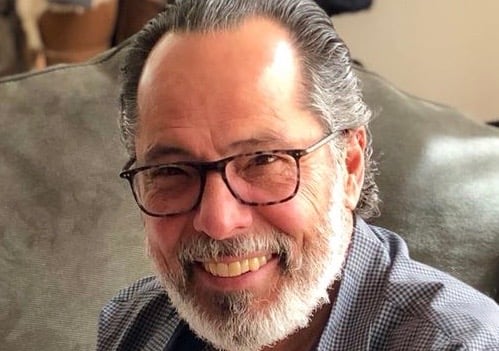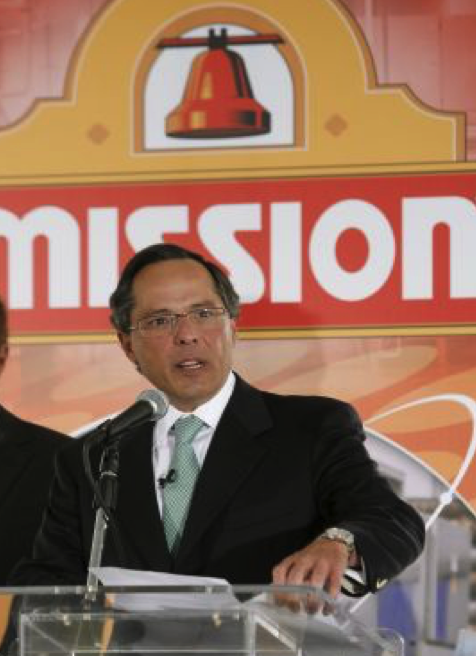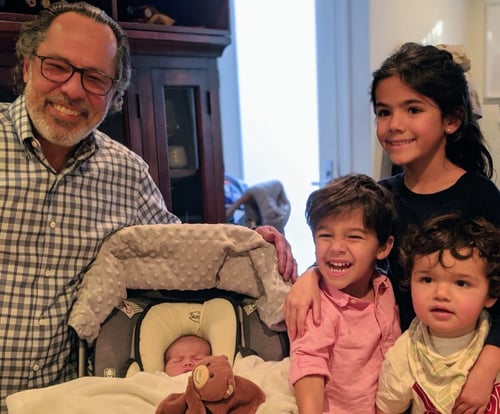Professor of Practice Juan F. Roche Brings Extraordinary Business Expertise, Passion for Learning to the Kroc School

Professor of Practice Juan F. Roche Brings Extraordinary Business Expertise, Passion for Learning to the Kroc School
begin quot
 After an impressive 35-year career in which he worked at the highest levels of some of the most respected businesses in the world, Juan F. Roche, PhD, joined the Kroc School’s faculty as a Professor of Practice focused on the MA in Social Innovation program.
After an impressive 35-year career in which he worked at the highest levels of some of the most respected businesses in the world, Juan F. Roche, PhD, joined the Kroc School’s faculty as a Professor of Practice focused on the MA in Social Innovation program.
After the Spring 2020 semester, we took time to learn more about his incredible trajectory and the path that led him to the Kroc School.
How would you describe yourself, personally and professionally?
I came into academia after a long career as an international business practitioner. Some call this being a pracademic – that is, someone that anchors theory and research to evidence-based practices, real-world knowledge creation and innovation. I grew-up in Venezuela and I have been fortunate to work, live and have business responsibilities in many culturally diverse countries, which gives me a global lens to view the world’s main problems and opportunities. The above two factors shape both my personal and professional life.
What are the highlights of your career that led you to the Kroc School?
While working full-time as a marketing executive in a cosmetics company, I completed my undergraduate studies at the Universidad Cátolica Andrés Bello in Caracas. When I graduated, I already had solid work experience, so I pursued an MBA at the University of Wisconsin–Madison. Upon my return to Venezuela, I continued my marketing career at a Procter and Gamble joint venture called Mavesa, the largest consumer products company in the country at the time. I also began to teach consumer behavior courses as an adjunct professor at my alma mater. I enjoyed teaching and wanted to remain connected to academia.
In my 15-year career at Mavesa, I was fortunate to have great mentors and bosses, and to be in the right place and at the right time to advance professionally. After a few years in Marketing, I was appointed Chief Supply Chain Officer, then Chief Financial Officer, and finally Chief Executive Officer at the age of 35. Culturally, Mavesa was a company with a broad stakeholders’ view regarding how businesses should be managed. Concepts like social responsibility and creating shared value were an important part of every business decision.
While at Mavesa, I confirmed that you can do well by doing good, and you cannot prosper if you do not strengthen the communities where you operate at the same time. Moreover, I saw how business ingenuity and innovation, partnered with governments and NGOs, can achieve results that no one sector can on its own. For example, I led a large multimillion-dollar agricultural project in partnership with small farmer cooperatives, financed by the World Bank and strengthened by the participation of the regional government, local civil society, and environmental organizations. This proved to be a model of efficiency and social inclusion. These experiences began to shape my interest in and passion for the intersection of business, government and civil society as the best way to advance social progress.
Concerned with the deteriorating political situation in Venezuela, and looking for an international experience beyond Latin America, in 1995 I accepted a position as President of Nabisco for Europe, the Middle East and Africa, based in Madrid, Spain. This was an enriching experience that allowed me to know and understand different cultures and ways of doing business.
I can relate two episodes that are relevant to my academic interest in business as a force for good. The first was in Russia, where we had a small biscuits operation. It was almost impossible to do business without falling into shady practices in a system that was just beginning to emerge from the collapse of the Soviet Union. We were not big enough to fight back nor influence a positive change in the situation. My decision, even at an economic loss, was to exit the business before it began to get worse or contaminate the rest of the organization.
The second episode had to do with the financial decision of closing an inefficient manufacturing facility in South Africa. I was determined to find a solution and avoid a process I knew was going to be painful and politically sensitive in a country that was just emerging from the apartheid years. We put together a beautiful project, in partnership with the Mandela government and an NGO, to manufacture a protein bar to be distributed in the black townships at cost, but with the Nabisco brand on it. This experience showed me the importance of systemic and lateral thinking to solve problems that, at first, seem to have no solution. Later, I was appointed President for Latin America, based at Nabisco headquarters in New York, where I had the opportunity to compare and contrast the cultural, political and social differences that exist in this vast and diverse region.
 As CEO of Mission Foods, Juan F. Roche inaugurated a fully solar-powered tortilla manufacturing facility in San Fernando Valley. It was the first of its kind and drew national attention as an example of environmentally sound manufacturing.
As CEO of Mission Foods, Juan F. Roche inaugurated a fully solar-powered tortilla manufacturing facility in San Fernando Valley. It was the first of its kind and drew national attention as an example of environmentally sound manufacturing.
Following Kraft’s acquisition of Nabisco, I became the CEO of Gruma Corp, a Mexican multinational based in Dallas, Texas. Our main product line was Mission Tortillas, and more than half of our consumers were Mexican and Central Americans. As a marketer at heart, I spent quite a lot of time in the market and with the consumers. This gave me a deep understanding of the tough and unjust situation that honest and hard-working immigrants have in the United States, and the importance of finding ways to solve their legal status.
After more than 35 years of business experience, I decided it was time to reinvent myself and go back to the teaching that I had done at the beginning of my career in Venezuela. I wanted to support future leaders in understanding the importance of business ingenuity for solving wicked social problems. That led me to pursue a PhD in leadership studies at University of San Diego and teach at SOLES and the USD School of Business. When the Kroc School’s MA in Social Innovation program was created, it was the perfect fit. Kroc School Dean Patricia Márquez invited me to become a full-time professor, and here I am.
What are you most looking forward to about the upcoming academic year?
Uncertainty and instability could be seen as an obstacle, or as an opportunity. The Covid-19 pandemic will no doubt disrupt the traditional, face-to-face teaching to which we are accustomed. However, we are all swiftly learning how to use online tools to maintain the personal learning experience and achieve the learning outcomes for our students.
I am convinced that this emergency will catalyze a knowledge process that will end up enhancing the way we teach and learn. For example, I believe that teaching is not about transmitting what I know to the students in lectures, but rather to incentivize a process of thinking and problem solving that occurs in the space among the heads of all participants – that is how knowledge is created. There are many technologies that help in that practice. Students tend to participate more and even express opinions that they might not in person. Once this emergency is over, those instruments will stay in our teaching toolbox.
What is something you are actively trying to strengthen, improve upon, or accomplish?
Living is about a constant process of improving – once you stop doing that, your life is basically over. I am constantly learning from my peers and my students. Listening to others is the best way to keep yourself current and maintain the ability to change your paradigms and the lens through which you see the world. So, I listen and read, which is a form of listening too.
My most important project at the moment is finishing a book, Social Systems Capitalism, which tries to highlight the sources of the problems that we face with the free market economic model, and it proposes solutions. Capitalism has proven to be the best way to allocate resources and reduce poverty, and hence, reduce conflict as well. However, markets do fail. Thus, to maintain the system, we need to correct the inequalities and hardships that it creates for some sectors of the population. The purpose of the book is to advance the discussion among practitioners, academics, policy makers and civil society regarding this complex issue. Writing a book has proven to be the most difficult undertaking I have ever done; it has been a humbling experience that has boosted my admiration for academic professionals.
How do you like to spend your time when you're not working at the Kroc School?
 Juan F. Roche with his four grandchildren.
Juan F. Roche with his four grandchildren.
I still do some consulting with international companies and startups. That allows me to stay involved with what is happening in the business world, which I think is important to complement my courses. However, what I enjoy the most is playing with my four grandkids. Being a grandad is a wonderful experience – you have all the love and fun, but not the responsibility. They live in the Bay Area, so I visit frequently, or they come visit us in San Diego.
Anything else you'd like to share with the students and our peacebuilding community, so that we can get to know you better?
The vision that Patricia Márquez has proposed for the Kroc School will truly be transformational. All the programs that we are offering, and the students that come from them, will be in high demand as the world recognizes the value they can bring for a more equitable world. In the sunset of my life, I am humbled, but also committed to helping to turn this project into a reality.
Ready to learn from Professor of Practice Juan F. Roche? Learn more about our MA in Social Innovation program.
Contact:
Justin Prugh
jprugh@sandiego.edu
(619) 260-7573

About the Author
The Joan B. Kroc School of Peace Studies (Kroc School) at the University of San Diego is the global hub for peacebuilding and social innovation. Founded in 2007, the Kroc School equips the next generation of innovative changemakers to shape more peaceful and just societies. We offer master's degrees in peace and justice, social innovation, humanitarian action, conflict management and resolution, and a dual degree in peace and law — programs that have attracted diverse and dynamic students from more than 50 countries. In addition to our graduate programs, the Kroc School is home to the Kroc Institute for Peace and Justice (Kroc IPJ). Founded in 2001, the Institute supports positive change beyond the classroom. Through groundbreaking research, experiential learning, and forward-thinking programs, the Kroc School and Kroc IPJ are shaping a future in which peaceful co-existence is the new normal.





